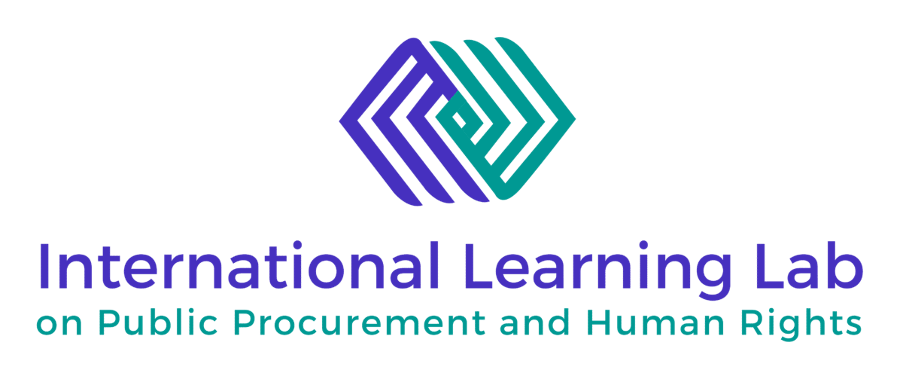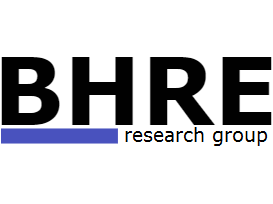THE HUMAN RIGHTS RESPONSIBILITIES OF THE UN AS A PROCURING AUTHORITY -Giorgio Migliore, April 2022
The human rights responsibilities of international organisations as procuring authorities have received limited attention to date, despite several reports exposing the commission of human rights abuses by suppliers contracted by international organisations in context such as Haiti and Syria.
It is widely accepted that the UN has an obligation to respect human rights in all of its work. The UN Guiding Principles on Business and Human Rights (UNGPs) affirm the state duty to protect from business-related human rights abuses, including within the state’s procurement activities. The UNGPs also affirm the responsibility of business enterprises to respect human rights, including in their supply chain, and apply to business relationships. While the UNGPs do not explicitly mention the human rights responsibilities of international organisations, commercial transactions such as the procurement of goods and services by international organizations do constitute business relationships. As such, and despite the unfortunate omission in the UNGPs’ texts, UN agencies have stronger responsibilities than private companies given their status under the UN Charter. .
The volume of procurement by the UN and its specialised agencies dwarfs the supply chains of most business enterprises; in 2020, the overall value of goods and services procured by the UN globally exceeded $22 billion. In many contexts, especially in countries struggling economically, the UN has the potential to shape markets and ensure that suppliers respect human rights in their supply chains, including in conflict areas such Syria.
Recent resolutions by the UN Security Council, General Assembly and the Economic and Social Council called upon UN agencies to ensure that the goods and services they procure are not associated with trafficking in persons. The UN has promulgated a number of internal policies and guidelines intended to implement its human rights responsibilities:
· The UN Human Rights Due Diligence Policy requires all UN entities that provide support to non-UN security forces to conduct human rights due diligence;
· The UN Guidance Note on Human Rights for Resident Coordinators and UN Country Teams expressly mentions the need to conduct “appropriate due diligence to avoid actual or perceived complicity or association with human rights violations and to promote compliance with human rights standards” and calls on the UN to “take due account of the UNGPs” when “engaging directly with private enterprises”;
· The UN Procurement Practitioners’ Handbook affirms that “the UN is committed to conducting business with only those suppliers sharing its values of respect for fundamental human rights, social justice, human dignity, and respect for the equal rights of men and women”;
· The UN Supplier Code of Conduct, which sets forth the UN’s expectations for all suppliers, requires suppliers to “support and respect the protection of internationally proclaimed human rights and ensure [not to be] complicit in human rights abuses”;
· The UN Principles and Parameters for Assistance to Syria, which were approved by the Secretary-General and set the framework for UN humanitarian action is Syria, stipulate that “the UN shall consider carefully human rights and protection implications, especially with regard to where and how assistance is provided. UN assistance must not assist parties who have allegedly committed war crimes or crimes against humanity”. They also indicate that: “rigorous standards of due diligence should apply, drawing from the principles of the Human Rights Due Diligence Policy. The UN shall apply the UN Guiding Principles for Business and Human Rights in all areas of its work in Syria […]”.
The gaps in UN procurement practices and the example of Syria
UN humanitarian agencies have largely failed to operationalise the principles and commitments contained in the aforementioned guidance documents in their procurement practices. As a result, existing UN procurement processes are, for the most part, unable to adequately address human rights abuses in UN supply chains.
In January 2022, the Syrian Legal Development Programme and Human Rights Watch published a Guide on UN procurement in Syria. This was developed in consultation with experts in business and human rights and public procurement. Our research on the procurement practices of UN humanitarian agencies operating in Syria revealed that human rights-based considerations play a marginal or non-existent role in all phases of their procurement processes. For example, we found that:
· The human rights risks associated with the operating environment are not identified and assessed during the pre-tender planning phase.
· Solicitation documents do not include human rights-based criteria. Exclusion criteria include “unethical practices”, which mostly refer to the previous involvement of a perspective supplier in corruption or similar conducts, and rely on UN sanctions lists, which in the Syrian context fail to account for a significant number of human rights abusers. Selection criteria are almost exclusively based on technical and financial considerations.
· The absence of human rights criteria in the solicitation documents results in the lack of an adequatehuman rights based vetting process for UN suppliers. Further, procurement officers rarely actively look for disqualifying criteria.
· In the post-award implementation and contract management phase, the monitoring of the human rights performance of suppliers is lacking. With few exceptions, the general conditions of contract of UN agencies do not expressly require suppliers to respect human rights other than in the context of sexual violence, child labour, and mines manufacturing.
This assessment finds support in a document published in 2021 by the UNWG on Business and Human Rights outlining the roadmap for next 10 years of business and human rights, which called the UN to “plug the gap in the UN system integration of the UNGPs […] by integrating human rights due diligence into all relevant policies relating to programming, procurement, partnership policies, and others”. The need for a more effective integration of the human rights due diligence, as outlined in the UNGPs, in the UN’s procurement practices is especially pressing in conflict and post-conflict settings, such as Syria, where the scale of human rights violations considerably increases the likelihood that local suppliers may be involved in human rights abuses.
The Guide produced by the Syrian Legal Development Programme and Human Rights Watch highlights that between 2015 and 2020 two different UN agencies awarded procurement contracts worth $3.4 million to a company called Jupiter for Investment. The Guide notes that the company is owned by Mohammed Hamsho, and who is subject to EU and US sanctions for “providing support and benefitting from the Syrian regime”. The Guide further notes that Hamsho also owns another company called Hadeed Metal Manufacturing, which is reportedly involved in processing scrap metals seized by the Syrian armed forces in Damascus and Damascus countryside.
In the Syrian context, the UN has recently taken steps that – depending on implementation – may improve its ability to realise its responsibility to respect human rights in its relationship with suppliers. It created the Regional Dialogue Mechanism - a forum for UN agencies, the UN Country Team and representatives of donor countries to discuss challenges relating to aid operations in Syria, including procurement practices. If done right, this could be a forum where human-rights related risks of major procurement processes can be discussed under UN auspices, and recommendations for mitigating these risks identified. If it is to work, this mechanism should involve sustained outreach to civil society organizations that are researching human rights abuses in Syria
The Syrian Legal Development Programme and Human Rights Watch’s guide aims to assist the UN in this process and provides targeted recommendations on how the UN can strengthen human rights compliance and better incorporate human rights due diligence in each phase of its procurement operations in Syria. The guide includes a tool to aid procurement officers in the identification of Syrian suppliers at risk of involvement in conflict-related human rights abuses. The need for a Syria specific risk assessment tool was made necessary by the range of human rights abuses a vendor might be involved in in Syria. These include contributing to or facilitating torture, abuse in detention, forced displacement and unlawful confiscation of property and go beyond the violations that even the most developed tools on human rights compliance in procurement and supply chains tend to focus on (e.g., violations of labour rights and children rights, gender-based violence and environmental abuses). Furthermore, with few exceptions, the conflict-related human rights abuses in which Syrian suppliers are involved do not occur as part of the suppliers’ business activity. Rather, in the majority of cases, the involvement results from the conduct of the individuals with ownership or control over the companies, particularly from their relationship with the Syrian government and the Syrian armed forces.

